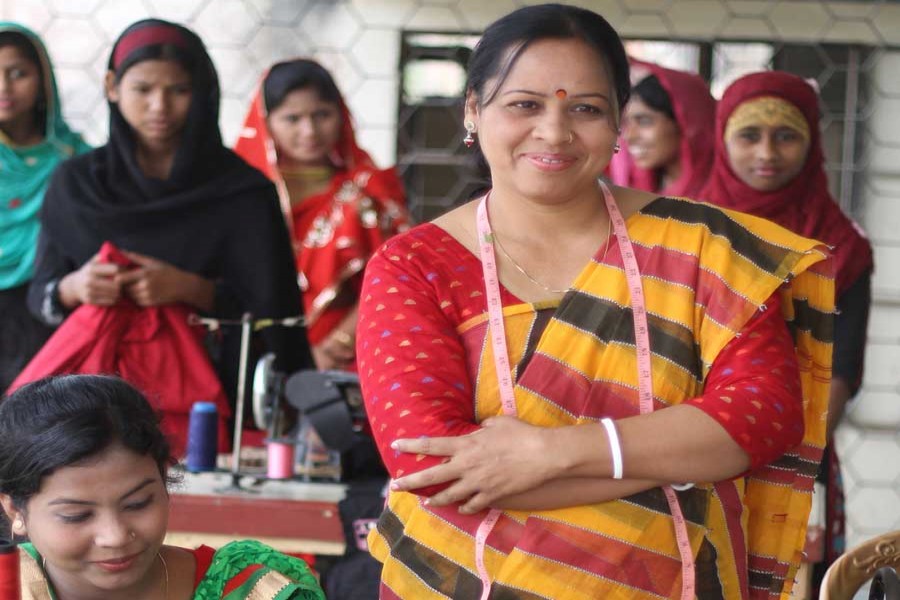In nearly a decade, Bangladesh witnessed an appreciable rise in women empowerment in all fields including the government and private jobs, securing their dignified places in the armed forces and police, trade and business, print and electronic media, diplomacy and also in the national politics.
The pace of women empowerment has been attaining greater progress under the governance of Prime Minister Sheikh Hasina, who has widened the door for the females towards proving their worth as an equal force in larger number in all key areas of the country.
Status of women is often described in terms of their legal rights, education, economic self-dependence, age at marriage, health, and fertility as well as the roles they play in family and society. The status of women implies a comparison with the status of men, and is therefore a significant reflection of the level of social justice in a country.
Women's economic participation and empowerment are fundamental to strengthening their rights and enabling them to have control over their lives and exert influence in society. It is about creating just and equitable societies. Women often face discrimination and persistent gender inequalities, with some of them experiencing multiple discrimination and exclusion because of various factors.
Bearing this in mind, Prime Minister Sheikh Hasina often says, "We must engage our women, half of the country's total population, in the mainstream development for our desired progress in the national economy." Since 2009, when Awami League came to power, there is barely any area left where the women have actively represented themselves.
The present government has already earned tremendous applaud from many international organisations for empowering women, thus helping them to enjoy an improved living. Of all the global bodies, the United Nations recognised Bangladesh as one of the few countries to score a remarkable progress in achieving its Millennium Development Goals (MDGs) by 2015.
Right now, Bangladesh has achieved the status of a developing country overcoming its Least Developed Country (LDC) position after attaining all the three criteria to secure this place. When the country gained its freedom in 1971, many were suspicious about its economic prospect, and the then US foreign secretary Henry Kissinger sarcastically called Bangladesh a 'basket case'.
Years ago, a World Economic Forum report ranked Bangladesh 8th worldwide in political empowerment of women, reflecting the present government's women-friendly policies. The Sixth Five Year Plan (2011-2015) of the present government, devised to promote Bangladesh to the rank of a middle-income country by 2021, put women on the forefront in both political and economic activities.
Women empowerment is a subject of concern among the policy makers in developing countries, where integration of women into the development process and therefore their participation in economic activities along with men has been gaining importance in many national development plans, reports BSS.


